Essential Seasonings for Spaghetti
The essential seasonings for spaghetti include oregano, basil, garlic, parsley, black pepper, and red pepper flakes. These ingredients form the foundation of most Italian pasta sauces, adding depth, aroma, and flavor balance. Below is a quick overview of each seasoning's role:
- Oregano: Adds a warm, slightly bitter note perfect for tomato-based sauces.
- Basil: Brings a bright, aromatic quality ideal for fresh or cream-based sauces.
- Garlic: Provides savory umami depth, essential for Italian dishes.
- Parsley: Used as a garnish for freshness and visual appeal.
- Black pepper: Adds subtle heat and depth.
- Red pepper flakes: Optional for those who like heat.
Table of Contents
Spice Basics for Spaghetti
Spaghetti is a canvas for flavor, and the right seasonings can make all the difference. While the base ingredients—like tomatoes, garlic, and olive oil—are essential, it's the seasonings that bring out the depth and complexity of the dish. From classic Italian staples to modern twists, here's a breakdown of what you need to know.
What Are the Common Seasonings?
- Oregano: A staple in Italian cuisine, oregano adds a warm, slightly bitter note that complements tomato-based sauces.
- Basil: Fresh basil brings a bright, aromatic quality that’s perfect for fresh or cream-based sauces.
- Parsley: Often used as a garnish, parsley adds a subtle freshness and a pop of color.
- Dried thyme: Adds a mild earthiness that works well with meat or vegetable-based dishes.
- Garlic powder or fresh garlic: A must for any Italian-inspired dish, garlic enhances the overall flavor profile.
- Black pepper: Always a key ingredient, black pepper provides a bit of heat and depth.
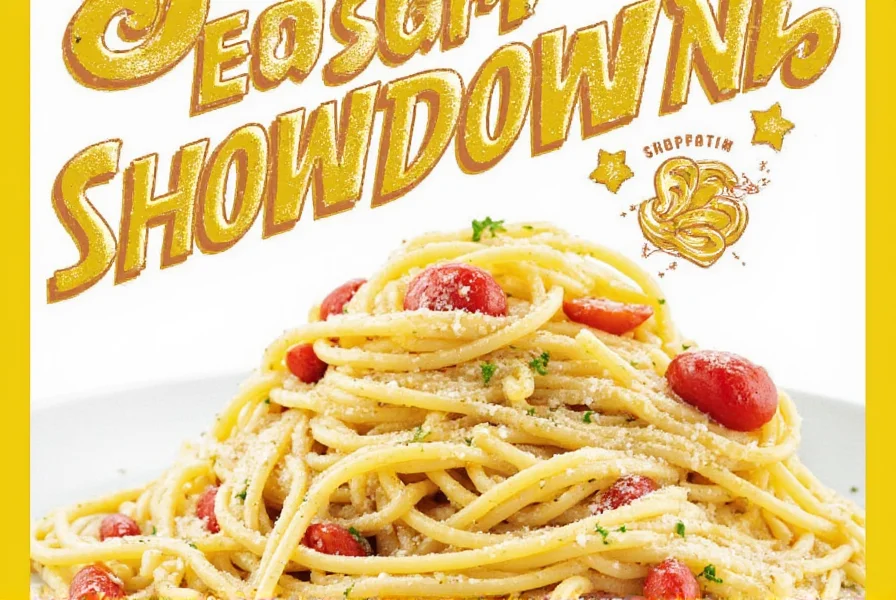
Must-Have Seasonings for Spaghetti
If you're looking to build a solid seasoning repertoire for your spaghetti, these are the essentials:
- Oregano – Perfect for traditional red sauces
- Basil – Ideal for fresh or pesto-based dishes
- Garlic – Adds a savory, umami-rich backbone
- Parsley – For finishing touches and visual appeal
- Red pepper flakes – For those who love a little heat
- Olive oil – The base for many Italian sauces
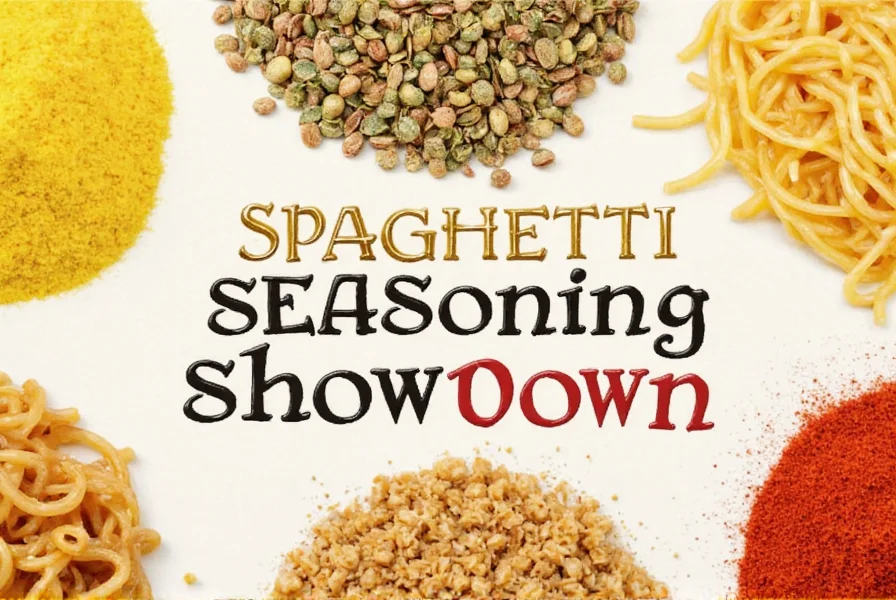
Seasoning Combinations to Try
While individual seasonings are great, combining them can create a more complex and balanced flavor. Here are some popular combinations:
| Combination | Description |
|---|---|
| Oregano + Basil + Garlic | The classic trio for a rich, aromatic tomato sauce. |
| Basil + Lemon Zest + Olive Oil | A light, fresh combination ideal for seafood or vegetarian dishes. |
| Thyme + Rosemary + Garlic | Great for heartier meat or mushroom-based sauces. |
| Red Pepper Flakes + Oregano + Parsley | Adds a kick of heat and a touch of freshness to any dish. |
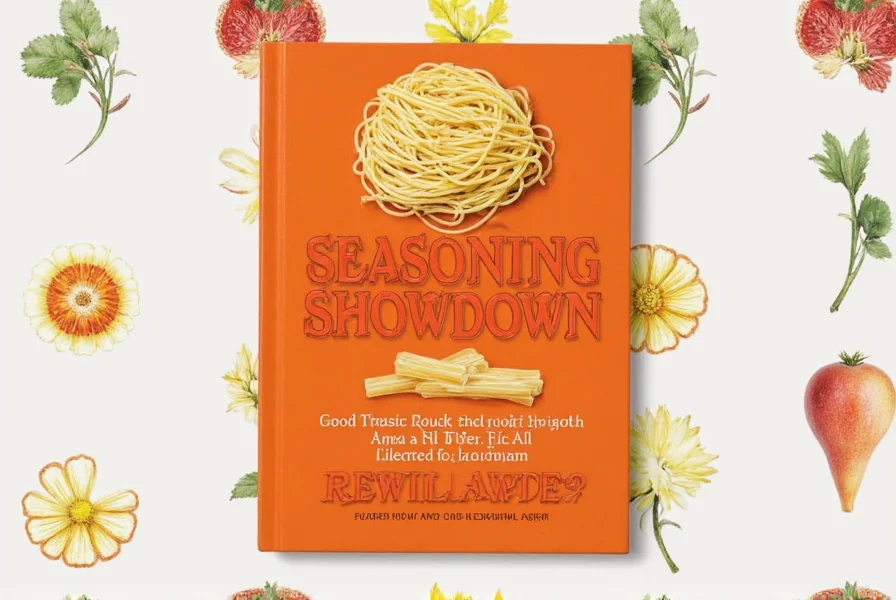
Buying Guide for Spaghetti Seasonings
Choosing the right seasonings can be overwhelming, especially if you're new to the game. Here’s a quick guide to help you pick the best products based on your needs:
Top Picks for Spaghetti Seasonings
- Italian Herb Mix
- Features: A blend of oregano, basil, thyme, and rosemary.
- Advantages: Saves time and ensures consistent flavor.
- Use Cases: Perfect for homemade sauces or pre-made mixes.
- Target Audience: Home cooks and aspiring chefs.
- Suitable Occasions: Weeknight dinners, family gatherings.
- Garlic Powder
- Features: Finely ground dried garlic.
- Advantages: Long shelf life and easy to use.
- Use Cases: Enhances the flavor of sauces, soups, and stews.
- Target Audience: Busy professionals and casual cooks.
- Suitable Occasions: Quick meals, meal prep.
- Red Pepper Flakes
- Features: Crushed dried chili peppers.
- Advantages: Adds heat without overpowering other flavors.
- Use Cases: Toppings for pizza, sauces, and dips.
- Target Audience: Spice lovers and adventurous eaters.
- Suitable Occasions: Parties, dinner parties, or personal indulgence.
- Fresh Basil
- Features: Fresh leaves with a vibrant aroma.
- Advantages: Brings a fresh, herbal note to any dish.
- Use Cases: Pesto, salads, and finishing touches.
- Target Audience: Gourmet chefs and home cooks who prefer fresh ingredients.
- Suitable Occasions: Special occasions, cooking classes.
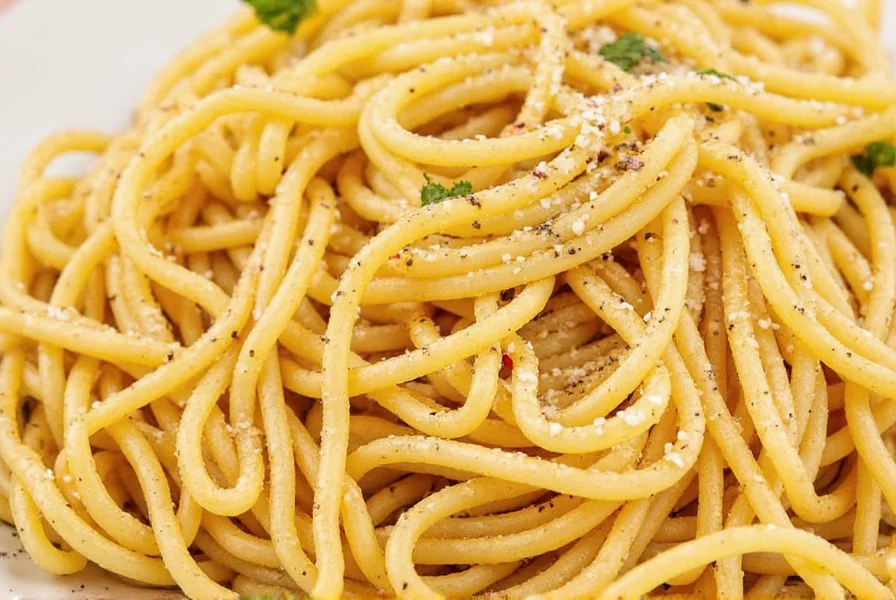
Frequently Asked Questions (FAQ)
What are the essential seasonings for spaghetti?
The essential seasonings include oregano, basil, garlic, parsley, and black pepper. Oregano and basil form the foundation for tomato-based sauces, garlic provides umami depth, parsley adds freshness as a garnish, and black pepper contributes subtle heat. Red pepper flakes are optional for those who prefer spicier dishes.
Can I use dried herbs instead of fresh ones in spaghetti sauce?
Yes, dried herbs work exceptionally well in cooked sauces. Dried oregano and basil actually intensify in flavor during simmering, making them ideal for tomato-based sauces. Use 1/3 the amount of dried herbs compared to fresh (e.g., 1 teaspoon dried = 1 tablespoon fresh). Reserve fresh basil for finishing dishes like pesto or as a last-minute garnish.
How do I balance flavors when seasoning spaghetti?
Start with the holy trinity: sauté garlic in olive oil, then add tomato base. Season in layers—add dried herbs early to bloom flavors, salt to enhance tomatoes, and black pepper for depth. Finish with fresh herbs and a pinch of sugar if tomatoes are acidic. Always taste and adjust: too acidic? Add a pinch of sugar. Too flat? Add salt or red pepper flakes. Underseasoned? Boost with garlic powder.
What's the best seasoning combination for meat-based spaghetti?
For meat sauces (like Bolognese), use thyme + rosemary + garlic as your core trio. These earthy herbs complement rich meats without overpowering. Add oregano in the last 10 minutes of cooking to preserve its flavor. Finish with parsley and a splash of red wine vinegar to cut through the richness. Avoid basil in long-cooked meat sauces as it loses potency.
How much seasoning should I add to spaghetti sauce?
Begin with these ratios per 24oz (700g) of tomato sauce: 1 tsp dried oregano, 1/2 tsp dried basil, 3 minced garlic cloves, 1/2 tsp black pepper, and salt to taste (start with 1/2 tsp). Simmer for 20 minutes, then adjust: if flavors are muted, add 1/4 tsp more herbs; if too salty, balance with a teaspoon of honey or butter. Remember—you can always add more, but you can't remove it!

Conclusion
In summary, the essential seasonings for spaghetti depend on the type of sauce you’re making and the flavors you want to highlight. Whether you're going for a classic Italian recipe or experimenting with new combinations, the right seasonings can transform your dish into something truly special. With the right tools and knowledge, you'll be able to create delicious, flavorful spaghetti every time. So grab your favorite herbs and start seasoning your way to pasta perfection!
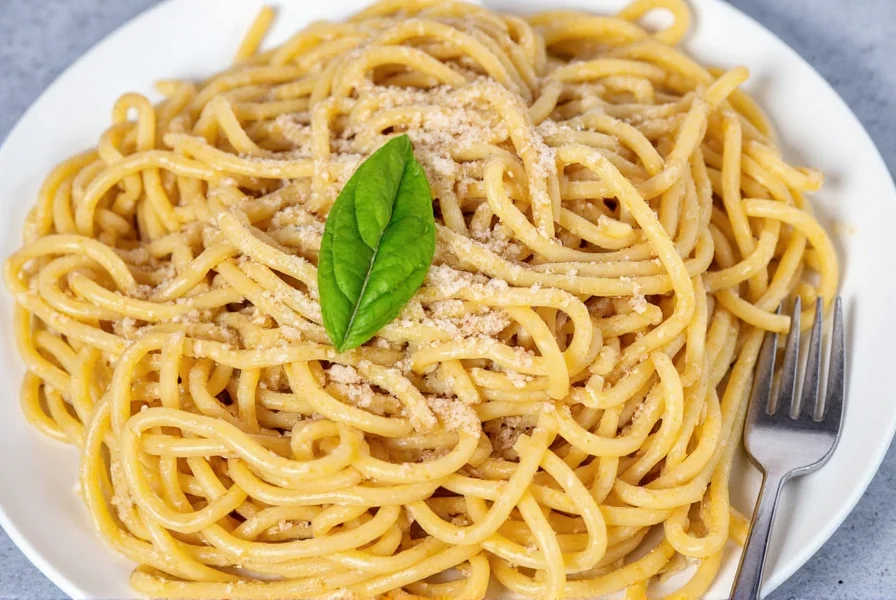

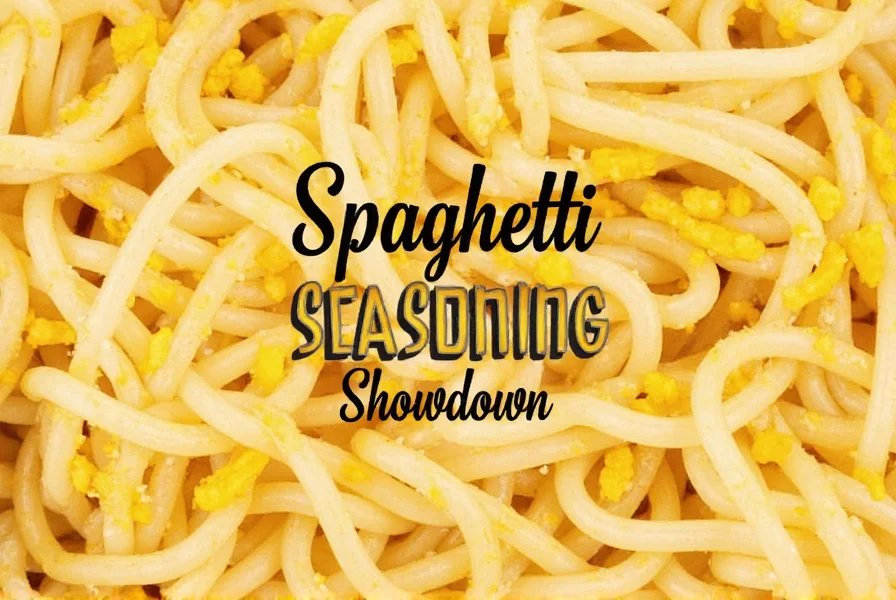









 浙公网安备
33010002000092号
浙公网安备
33010002000092号 浙B2-20120091-4
浙B2-20120091-4